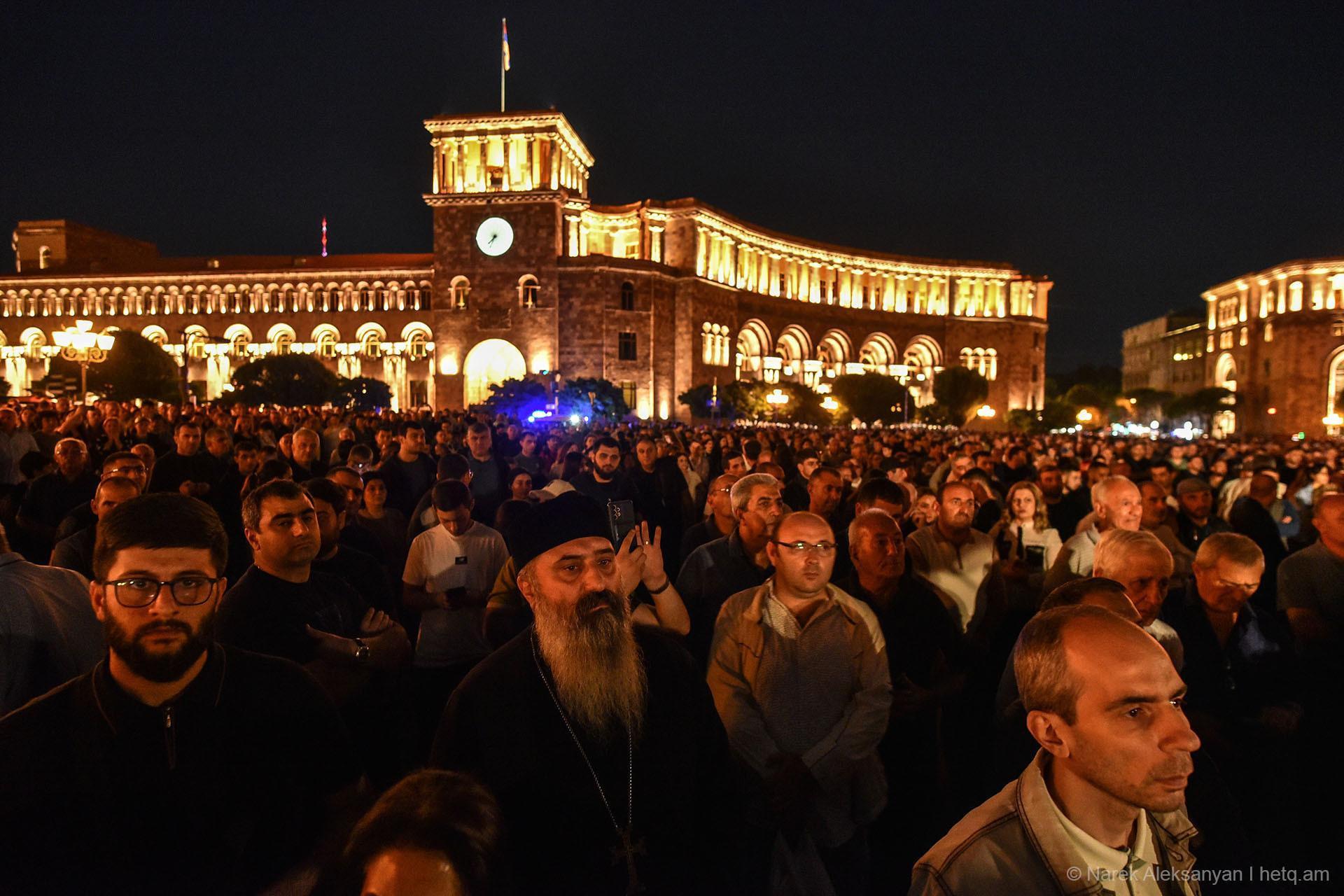
Freedom House: Armenia’s Democracy Rating Slips
Armenia’s “Democracy Score” declined from 3.11 to 3.07 according to the latest edition of the Nations in Transit report issued by the U.S.-based think tank Freedom House.
The score is based on a scale of one to seven, with seven representing the highest level of democratic progress and one the lowest․
The report evaluates the state of democracy in the region stretching from Central Europe to Central Asia.
Armenia’s overall democratic rating decline is based on a drop of its National Democratic Governance rating from 2.50 to 2.25 “due to the executive’s consolidation of power, the multiyear trend of central authorities overreaching and impeaching opposition mayors, and the lack of transparency in ruling party finances.”
Of the 29 countries covered in this report, ten suffered declines in their Democracy Score, while only five earned improvements.
The report designates eight countries as “Consolidated Authoritarian Regimes” (Kyrgyzstan, Kazakhstan, Uzbekistan, Belarus, Russia, Tajikistan, Turkmenistan, Azerbaijan).
Armenia is one of the eleven countries designated as Hybrid Regimes that have characteristics of both autocracies and democracies.
Regarding Armenia, the report writes:
“In the South Caucasus, Armenia’s democratization efforts were adversely affected by the Azerbaijani regime’s brutal offensive in Nagorno-Karabakh, which prompted the more than 120,000 ethnic Armenians living there to flee west. They have now settled mostly in Armenia itself, where the government is attempting to address their humanitarian needs while also defending its own territory, consolidating power amid domestic criticism, and responding to the demands for better governance that sparked the country’s 2018 revolution.”
National security issues, the report argues, continue to shape the political landscape in Armenia and has exacerbated political polarization between the ruling Civil Contract party and the opposition. This undermines meaningful dialog on critical matters.
“Nevertheless, Civil Contract’s constitutional majority allows it to fast-track reforms almost without resistance, which greenlights the government’s agenda but also bears the risks of lacking parliamentary checks and balances, especially due to the prime minister’s extensive powers prescribed by the constitution.”
Read full report on Armenia.
 Videos
Videos Photos
Photos
Write a comment